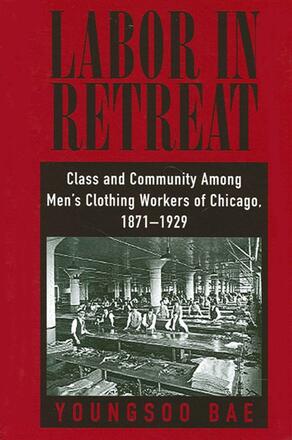
Labor in Retreat
Class and Community among Men's Clothing Workers of Chicago, 1871-1929
Alternative formats available from:
Offers a fresh perspective on the origins of business unionism.
Description
Winner of the 2002 Annual Award in the Publications/Scholarly category presented by the Illinois State Historical Society and Association of Illinois Museums and Historical Societies
Why did the American labor movement decline in the 1920s? This is a question historians have often answered by pointing at the adverse circumstances begetting the movement, such as chronic recessions in many industries, a conservative political climate, and divisiveness along racial, ethnic, and skill levels among American workers. But how did workers cope with the circumstances? What role did they play in the waning movement?
Based on research into the Amalgamated Clothing Workers of America (ACWA), an industrial union with a progressive posture, Labor in Retreat details workplace politics in a larger context and presents a fresh view on the origins of business unionism, with significant implications for a different perspective on American immigration history. Focusing on Chicago and using a wealth of primary sources, Youngsoo Bae analyzes residential patterns, social institutions, and social relationships and posits that the weakened sense of community among ethnic groups after World War I, rather than the unfavorable atmosphere of the day, had a major impact upon the ACWA turning toward business unionism. Proposing a fresh perspective on American immigration history, which embraces both the old and revisionist models, Labor in Retreat also suggests a different conception of class, community, and space as it explores these issues related to the American labor movement.
Youngsoo Bae is Professor of History at Seoul National University.
Reviews
"This book has the potential to make a major impact on the field of labor history, because it provides an alternative and sophisticated perspective on the origins of business unionism in what is generally viewed as a progressive union. " — David J. Goldberg, Cleveland State University
"Bae has written the most cogent account in the literature of the political economy of a local union. " — Robert Asher, coeditor of Labor Divided: Race and Ethnicity in United States Labor Struggles, 1835–1960